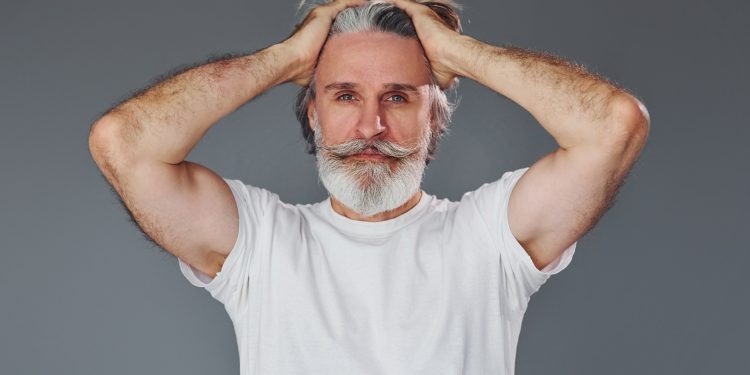Premature graying of hair is a phenomenon that puzzles many, especially when it occurs at an early age. While it is common for hair to lose its pigment as we age, seeing gray strands in your twenties or even teens can be surprising and concerning. Various factors contribute to this early graying, including genetics, stress, nutritional deficiencies, and underlying health conditions.
Understanding the root causes can help in managing and potentially slowing down the process. This article delves into the reasons behind premature graying, offering insights and solutions to help you maintain and keep healthy your natural hair color for longer.
The Role of Genetics
One of the most significant factors influencing premature graying is genetics. If your parents or grandparents experienced early graying, there’s a good chance you might too. This hereditary aspect is due to the genes that regulate the production of melanin, the pigment responsible for hair color.
As we age, melanin production decreases, leading to gray or white hair. In some individuals, this process begins much earlier due to genetic predisposition.
The Influence of Stress
Stress is often cited as a common cause of premature graying, and while the link isn’t entirely direct, there is some truth to it. Chronic stress can lead to the production of certain hormones and chemicals that might affect melanin production.
Additionally, stress can exacerbate underlying conditions that contribute to early graying. While eliminating stress entirely is unrealistic, managing stress through techniques such as mindfulness, exercise, and adequate sleep can potentially mitigate its effects on your hair.
Nutritional Deficiencies
A balanced diet is crucial for overall health, including the health of your high-density hair. Deficiencies in essential vitamins and minerals, particularly Vitamin B12, iron, copper, and zinc, can contribute to premature graying. Vitamin B12 deficiency, for example, has been linked to reduced melanin production.
Ensuring a diet rich in these nutrients or considering supplements can help maintain hair color for longer. Foods such as leafy greens, nuts, seeds, and lean meats are excellent sources of these essential nutrients.
Additionally, staying hydrated and avoiding excessive consumption of processed foods can further support hair health and prevent premature graying.
Smoking and Environmental Factors
Smoking is not only detrimental to your overall health but also accelerates the aging process, including premature graying and skin. The toxins in cigarettes can damage hair follicles and affect melanin production. Similarly, environmental factors such as exposure to pollution and UV radiation can contribute to oxidative stress, damaging hair follicles and leading to early graying. Quitting smoking and taking protective measures against environmental pollutants can help preserve your natural hair color.
The Role of Oxidative Stress
Oxidative stress is a condition where free radicals, unstable molecules that can damage cells, outweigh the body’s ability to neutralize them. This imbalance can lead to premature aging, including graying hair.
Antioxidants, found in fruits and vegetables, can help combat oxidative stress. Incorporating a diet rich in antioxidants, such as berries, nuts, and green tea, can support the body’s defenses against oxidative damage.
Can Premature Graying Be Reversed?
While there is no surefire way to reverse premature graying, some treatments may help slow down the process or improve the appearance of gray hair. Hair dyes and natural remedies, such as henna, can provide a temporary solution for those looking to cover gray hair.You can explore various ayurvedic home remedies as part of these natural solutions. Some studies suggest that certain supplements, like PABA (para-aminobenzoic acid) and folic acid, might help restore hair color in some individuals, but more research is needed in this area.
Premature graying results from genetics, lifestyle factors, and health conditions. While it may not be entirely preventable, understanding its causes helps in making informed hair care decisions. Embracing gray hair can be empowering, but if it bothers you, various treatments and hair care products are available. Remember, healthy hair starts with a healthy lifestyle,
Focus on maintaining overall well-being to support your hair’s health. Proper nutrition, stress management, and regular exercise can contribute to healthier hair. Ultimately, the choice to embrace or treat gray hair is personal and should align with your comfort and confidence. Start taking care of yourself before it’s too late.









